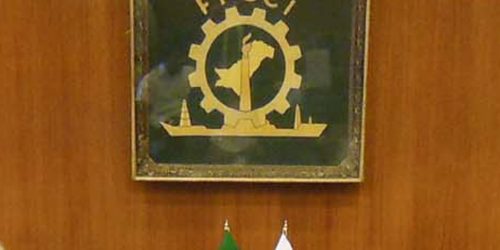LAHORE: Federation of Pakistan Chambers of Commerce and Industry (FPCCI) President Mian Anjum Nisar on Monday stressed the need for resolving the circular debt issue by revamping the entire power sector, including tariff setting, efficiencies of power generating units, supply chain network and payment recoveries.
If this is not done, the future of energy sector would remain at stake, the FPCCI chief warned and urged the power ministry to identify system constraints, communicate targets to all the concerned departments to initiate up-gradation of transmission system on war footing. In this post-corona era, the best solution to overcome economic challenges is to promote industrial activities by slashing energy cost to revive the economic growth and sustain employment in the country, he said.
He said that the NEPRA’s accumulated cut of Rs3.09 per unit just for three months under a monthly fuel adjustment formula is not an enduring solution to ease industrial cost of production. He asked the government to bring down electricity tariff to the competitive level of regional countries on permanent basis. Pakistani exports cannot compete with China, Bangladesh and India where power tariffs were 7-9 cents, particularly in the post-corona economic slowdown as the country’s exports have been witnessing a major setback in present days due to high cost of electricity, which has become a major stumbling block in industrial development and boosting exports.
“FPCCI welcomes the National Electric Power Regulatory Authority (NEPRA) to provide accumulated relief of Rs 4.46 billion to the power consumers as it has decided power tariff for eight months of Nov 2019 to June 2020 for power distribution companies (DISCOs) under the formula of monthly fuel charges adjustment, but this is not a permanent solution,” he stated.
He pointed out that NEPRA has also decided to increase in electricity rates for five months of Nov, Dec, Jan, Feb and March with accumulated impact of Rs 4.86 per unit, putting an additional burden of billions of rupees on industrial consumers.
He said the demand for electricity has been rising consistently mainly due to growing industrial requirement and population explosion but unfortunately, power generation and supply have not been able to meet this rising demand of electricity. The cost of electricity generation is also high due to faulty fuel mix which has led to massive load shedding and power shortages in Pakistan.
Mian Anjum Nisar said that production of hydel power has been increased while furnace oil price is constantly declining in the international markets. The authority, therefore, should not restrict the relief to few months only rather it should make decrease in the power tariff on permanent basis, he added.
He raised the questions on excessive electricity bills, as the government is using expensive fuel for power generation instead of cheaper energy source.





